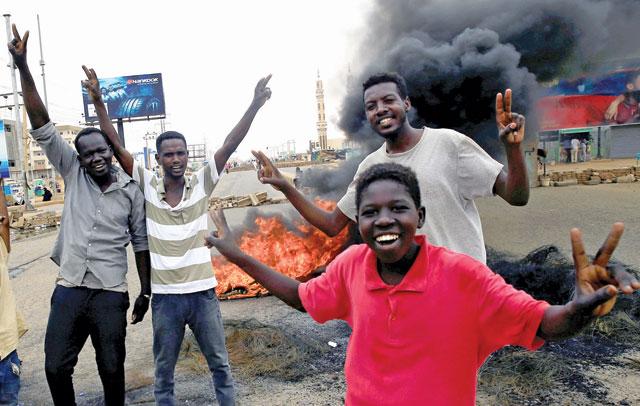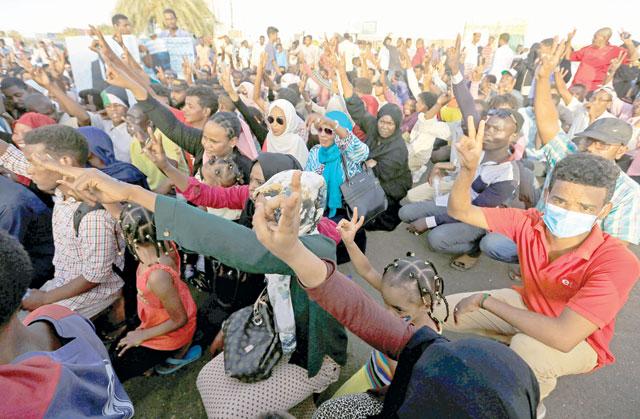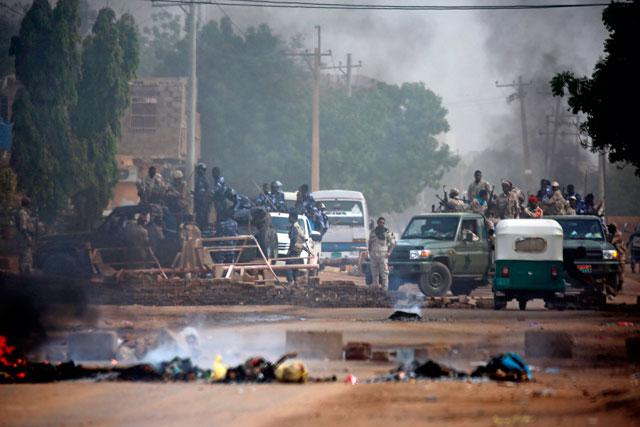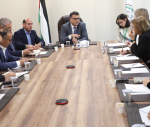You are here
Sudan's military and opposition agree on transitional power structure
By Reuters - May 14,2019 - Last updated at May 14,2019
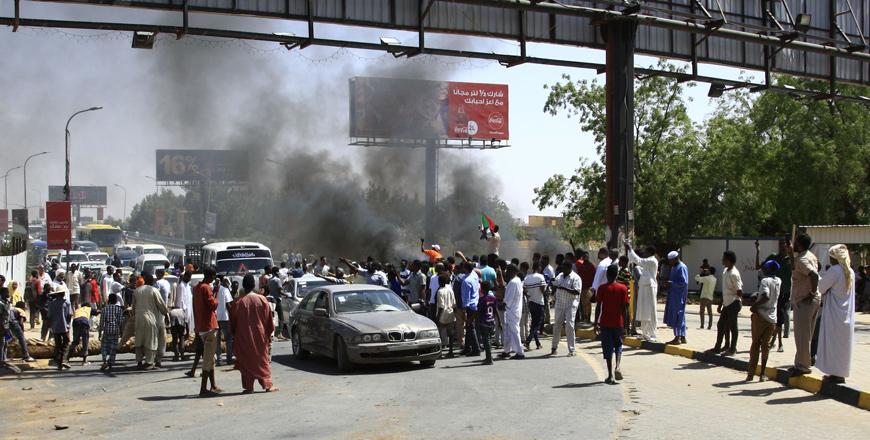
Sudanese protesters try to block a street in the capital Khartoum during a demonstration on Monday (AFP photo)
KHARTOUM — Sudan's military council and opposition groups have agreed to a power structure for the country's transition, but have yet to decide how long it will last or the make-up of transitional bodies, the council's spokesman said on Monday.
The military-civilian balance of power and the length of the transition have been key sticking points in talks between the council and an alliance of protest and opposition groups since former President Omar Al Bashir was ousted on April 11.
Those points will be addressed on Tuesday, according to Transitional Military Council (TMC) spokesman Lieutenant General Shams El Din Kabbashi and Taha Osman Ishaq, a spokesman for the Declaration of Freedom and Change Forces opposition alliance.
Protesters are pushing for a civilian-led transition and have kept up demonstrations against the council since military officers removed Bashir, who is now facing multiple criminal investigations, from power.
On Monday they blocked roads in central Khartoum in an escalation of tactics after security forces used tear gas to disperse dozens of protesters across the Nile in Khartoum North, Reuters witnesses said.
For a second day on Monday demonstrators blocked Nile Street, a major avenue running south of the Blue Nile, placing burning branches and stones across the road.
A group of about 50 protesters also blocked a small road between the health ministry and Khartoum University. Soldiers tried and failed to persuade them to open a section of the street.
In Khartoum North, police and paramilitary Rapid Support Forces dismantled barricades and dispersed about 100 protesters who had blocked a road leading to al-Mek Nimir Bridge and the centre of the capital.
The blockage had brought traffic in the capital to a near standstill, a Reuters witness said. Rapid Support Forces also fired in the air to disperse protesters near Blue Nile bridge, witnesses said.
Sit-in
Protesters demanding a swift handover of power to civilians have been camped at a sit-in outside the Defence Ministry compound in central Khartoum since April 6, as the military has negotiated with the opposition alliance over the transition.
Talks resumed on Monday, and both sides said they had produced agreement on the duties and authorities of sovereign, executive and legislative bodies.
"We discussed the structure of the transitional authority and agreed on it completely, and we also agreed on the system of governance in the transitional period," said Kabbashi.
"We will continue tomorrow with talks on the ratio of participation on the sovereign level ... and the length of the transitional period," he said. "God willing, we will agree on these two points."
The Sudanese Professionals' Association, which leads the opposition alliance, has accused the TMC of expanding its powers as talks over the transition have stalled.
"The situation now in public roads, bridges and in neighbourhoods expresses the state of popular discontent with the procrastination and the consumption of time by the military council," it said on Monday.
The TMC has said it is not seeking power and is open to further dialogue.
Also on Monday, Sudan's public prosecution said it had charged Bashir and others with incitement and involvement in the killing of protesters.
Earlier this month, the public prosecutor ordered Bashir to be interrogated on charges of money laundering and financing terrorism. There has been no comment from Bashir, who is being held in prison in Khartoum.
Related Articles
KHARTOUM — Sudan's opposition on Tuesday rejected a plan by its military rulers to hold elections within nine months, a day after the worst
KHARTOUM — Sudan's military rulers and an opposition alliance met on Monday to discuss the powers of a joint military-civilian council to st
KHARTOUM — Sudan's military rulers forcefully broke up a weeks-long sit-in outside Khartoum's army headquarters on Monday leaving at least 3


